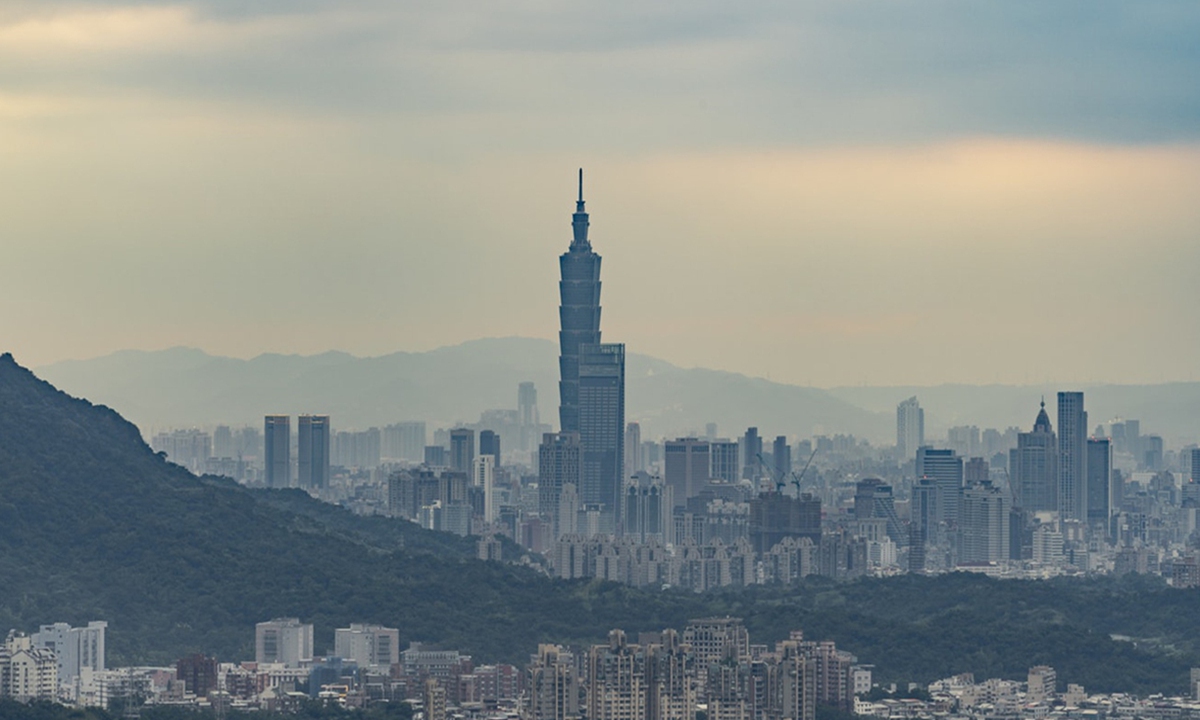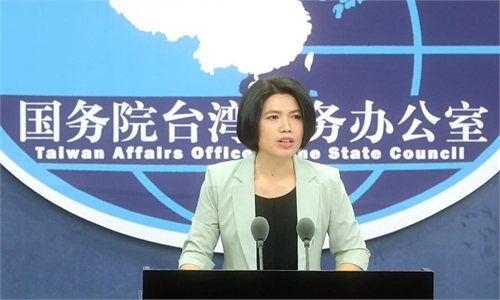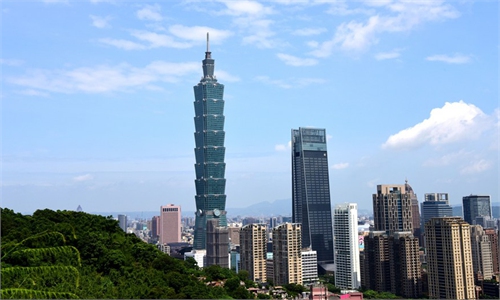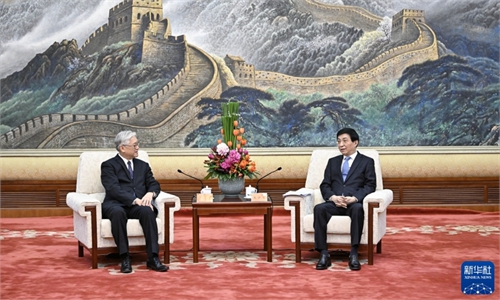DPP authorities lift restrictions on individual travels to Taiwan region from HK, Macao residents, urged to open to mainland travelers

A view of the Taipei city, Taiwan island Photo: Unsplash
Individual travel of Hong Kong and Macao residents to Taiwan region will resume, the Democratic Progressive Party (DPP) authorities on the island announced on Tuesday. Tourism businesses on the island of Taiwan welcomed the move, hoping it to be a starting point to further lift travel restrictions on mainland tourists, which could benefit local tourism, among others.
Citing an easing COVID-19 situation, the "mainland affairs council" in Taiwan on announced at a Tuesday press briefing that it will process online applications from people from Hong Kong and Macao from 9 am on February 20, Taiwan-based media reported.
Before the resumption of individual travel, group travel to the Taiwan region for Hong Kong and Macao residents had already resumed in November 2022, which allows a 15-day stay for travel groups of 5 to 40 tourists.
Shares in Taiwan's major airlines all rose on Tuesday, a result believed to be directly linked to the removal of travel restrictions.
Earlier this year, tourism and transport authorities in Taiwan set a target of attracting five million international tourists including one million from the mainland by 2023. Wang Kwo-tsai, head of Taiwan's transportation and communications authority, told media on January 31 that he welcomes mainland tourists to visit Taiwan, but lifting the barriers is related to the "mainland affairs council" and "national security" authority.
On February 9, "mainland affairs council" spokesperson Chiu Chui-cheng said that the Chinese mainland "coerced" the island into recognizing the 1992 Consensus as premise for cross-Straits exchanges, which is unacceptable.
Tang Yonghong, deputy director of the Taiwan Research Center at Xiamen University, told the Global Times on Tuesday that it was the DPP authorities that attempted to coerce the mainland to give up the 1992 Consensus that embodies the one-China principle, to resist reunification and highlight their secessionist stance.
DPP authorities may believe that cultural and social exchanges across the Taiwan Straits are not conducive to their pursuit of Taiwan secession, so they showed up with a negative attitude, Tang said.
However, in the long run, the expert noted that DPP authorities are likely to consider lifting restrictions on mainland travelers if there is strong dissatisfaction from the local tourism sector as the 2024 elections draw near.
According to data from Taiwan authorities, from July 18, 2008, when the island first fully opened to mainland tourists, to 2018, the total number of mainland tourists to Taiwan exceeded 26,596,000, with the mainland becoming the largest source of tourists to Taiwan, with the annual number peaking at 4.18 million people in 2015. According to tourism data in 2018, the average daily consumption of mainland tourists was NT$6,383 ($221.3), higher than the island's average of $191.
According to the results of an online poll conducted by Yahoo in Taiwan, 41 percent of respondents support the return of mainland tourists to Taiwan, ahead of those who do not welcome it.
A Taiwan-based tourism practitioner surnamed Teng told the Global Times that tens of thousands of tour guides on the island are hoping for the resumption of exchanges between the two sides.
Mainland tourists' purchasing power is unmatched. At the same time, the two sides shares the same culture and history, which many mainland tourists consider makes Taiwan a must-see destination, he noted.
"Without cross-Straits exchanges, we'll lose our job," Teng said. Over the past three years, travel agencies in Taiwan have cut their staff by 70 percent, he said.




